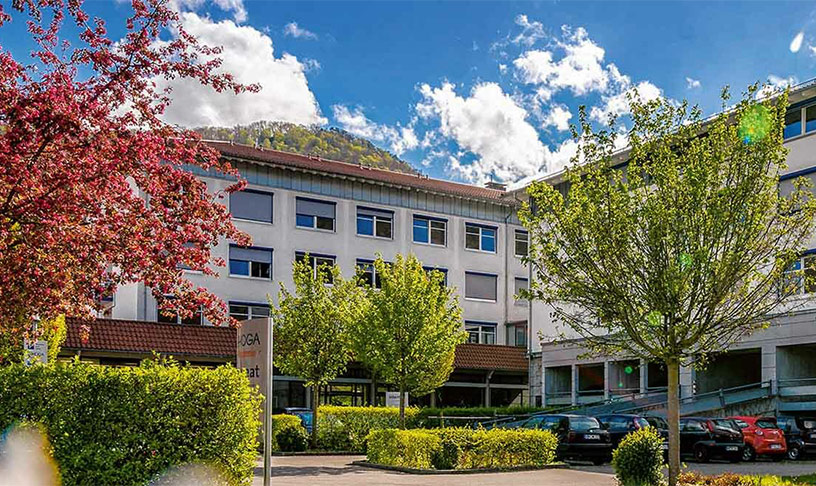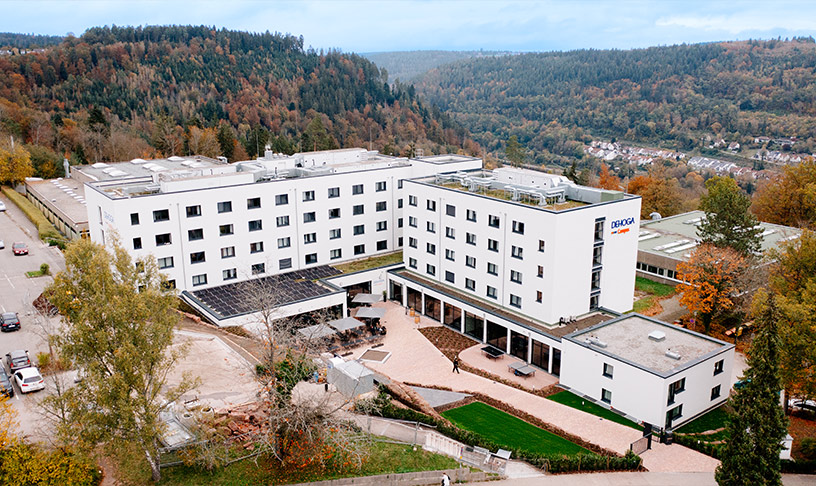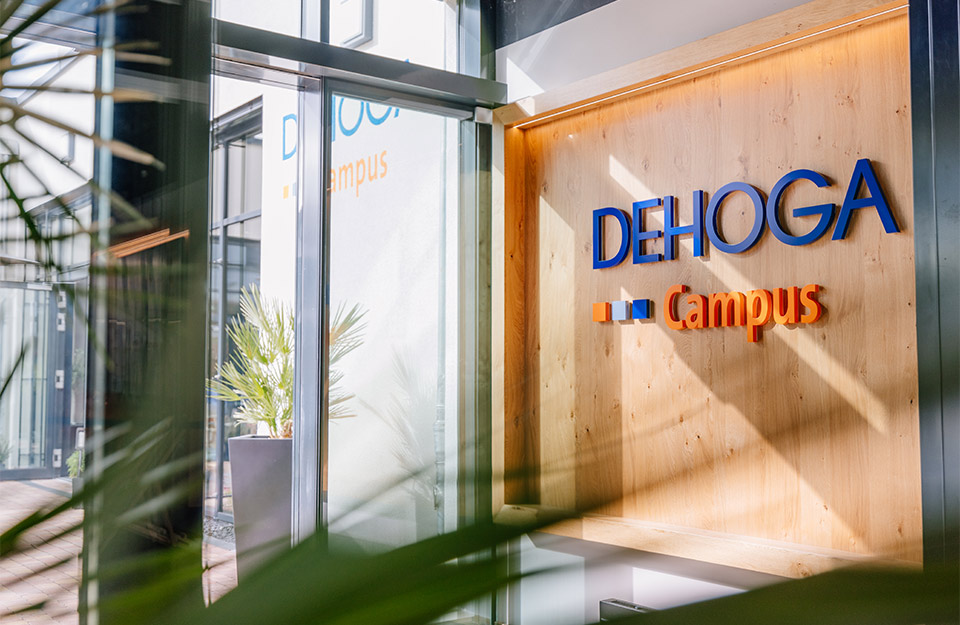Welcome to the DEHOGA Campus
The DEHOGA Campus offers an ideal combination of modern accommodation and first-class training in Baden-Württemberg. At the Bad Überkingen and Calw locations, DEHOGA Baden-Württemberg sets new standards for the needs of young people during their training. Whether in the hospitality industry, in gardening and landscaping or as a specialist for media and information services - all trainees benefit from a modern learning environment as well as a comfortable living environment, which creates a pleasant atmosphere during the block teaching phases.
Trainees in the hospitality industry, with the exception of trainees in hotel management, are based at one of the two DEHOGA Campus locations. Calw is also home to media and information services specialists, while Bad Überkingen accommodates trainees in gardening and landscaping. The DEHOGA Campus makes training a holistic experience - interdisciplinary and future-oriented.

Campus Bad Überkingen

Campus Calw
Fundamentals of Vocational Training

Explore the Campus
Impressions
The two campus locations provide and inviting atmosphere for hospitality trainees, featuring modern living spaces and a wide range of leisure activities both on-site and in the surrounding region.